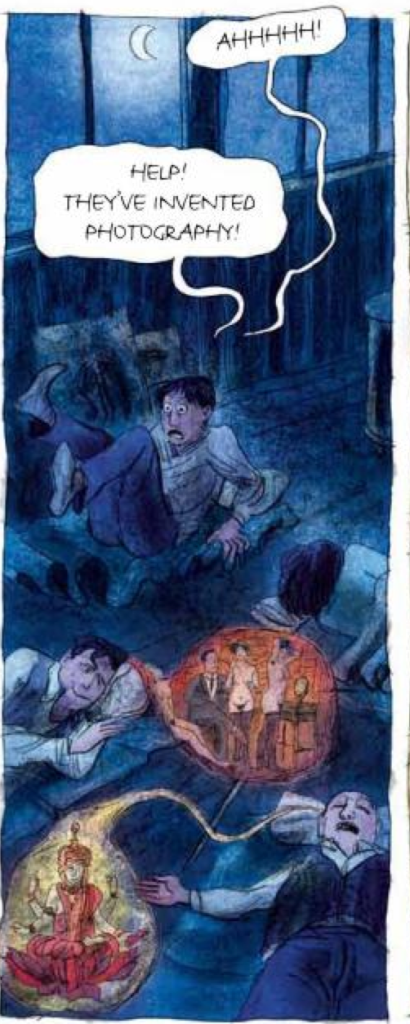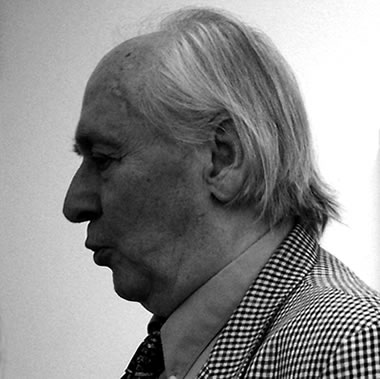This is a great Artist’s memoir, with nice art, and text that ties in history with biography and travel. It’s a fast read also.
[showbookcover isbn=”159420134X” display=”excerpt” action=”amazon”]
Category Archives: books
Life, Paint and Passion: Reclaiming the Magic of Spontaneous
I saw this at Goodwill for $2, and thought I’d give it a try. Not for me. Basically it’s “Art (or spontaneous art rather process) as therapy”. There are better books on that, and also on using the process to make art. She focuses on spontaneous process, which is fine if you need to work through some stuff, but she doesn’t want you to show the result, because “it’s not important”, It’s just a product.
So kinda woo-woo, and not much there for an artist who wants to share an end result, which is what artists do, but if you are not a painter, and want to work on “creativity” you might get something out of this.
[showbookcover isbn=”0874778107″ display=”excerpt” action=”amazon”]
First book of the year — Tools of Titans by Tim Ferriss
First book finished this year. Good advice on living and working. Take the tools you need, and leave the rest.
[showbookcover isbn=”B01HSMRWNU” display=”excerpt” action=”amazon”]
My Top 10 Reads From 2017
I read 41 books last year (not as many as I wanted, but not bad), here are my 10 favorites, in no particular order. These don’t include short or monthly comics, or art catalogues.
[showbookcover isbn=”1609452240″ display=”justimage” action=”amazon”]
[showbookcover isbn=”1609452534″ display=”justimage” action=”amazon”]
[showbookcover isbn=”1534300279″ display=”justimage” action=”amazon”]
[showbookcover isbn=”1631406507″ display=”justimage” action=”amazon”]
[showbookcover isbn=”1935233386″ display=”justimage” action=”amazon”]
[showbookcover isbn=”0804170150″ display=”justimage” action=”amazon”]
[showbookcover isbn=”1101875682″ display=”justimage” action=”amazon”]
[showbookcover isbn=”1603586865″ display=”justimage” action=”amazon”]
[showbookcover isbn=”1570273243″ display=”justimage” action=”amazon”]
[showbookcover isbn=”1520536038″ display=”justimage” action=”amazon”]
Pablo
That’s how I feel
 about books, and Pablo a graphic novel about Fernande Oliver, and Picasso’s relationship in his early days, before Les Demoiselles, and after. It is a beautifully written and painted book by (artist) Clément Oubrerie and (writer) Julie Birman. To the right is a favorite panel, about half way through the book.
about books, and Pablo a graphic novel about Fernande Oliver, and Picasso’s relationship in his early days, before Les Demoiselles, and after. It is a beautifully written and painted book by (artist) Clément Oubrerie and (writer) Julie Birman. To the right is a favorite panel, about half way through the book.
Samuel R Delaney’s Take on Information Gathering
Twelve years ago some public channeler had made a great stir because the government had an average ten hours videotaped and otherwise recorded information on every citizen with a set of government credit tokens and/ or government identity card. Eleven years ago another public channeler had pointed out that ninety-nine point nine nine and several nines percent more of this information was, a) never reviewed by human eyes (it was taken, developed, and catalogued by machine), b) was of a perfectly innocuous nature, and, c) could quite easily be released to the public without the least threat to government security.
Ten years ago a statute was passed that any citizen had the right to demand a review of all government information on him or her. Some other public channeler had made a stir about getting the government simply to stop collecting such information; but such systems, once begun, insinuate themselves into the greater system in overdetermined ways: Jobs depended on them , space had been set aside for them, research was going on over how to do them more efficiently— such overdetermined systems, hard enough to revise, are even harder to abolish.
Eight years ago, someone whose name never got mentioned came up with the idea of ego-booster booths, to offer minor credit (and, hopefully, slightly more major psychological) support to the Government Information Retention Program: Put a two-franq token into the slot (it used to be half a franq , but the tokens had been devalued again a year back), feed your government identity card into the slip and see, on the thirty-by-forty centimeter screen, three minutes’ videotape of you, accompanied by three minutes of your recorded speech, selected at random from the government’s own information files. Beside the screen (in this booth, someone had, bizarrely, spilled red syrup down it, some of which had been thumb-smudged away, some scraped off with a fingernail), the explanatory plaque explained: “The chances are ninety nine point nine nine and several nines percent more that no one but you has ever seen before what you are about to see. Or,” as the plaque continued cheerily, “to put it another way, there is a greater chance that you will have a surprise heart attack as you step from this booth today than that this confidential material has ever been viewed by other human eyes than yours. Do not forget to retrieve your card and your token. Thank you.”Delany, Samuel R. (2011-03-01). Trouble on Triton (Kindle Locations 220-238). Wesleyan University Press. Kindle Edition.
Yeah the NSA etc. sucks. This is just one view of what a future society with very little, to no privacy, might look like. From Trouble on Triton first published in 1976 (I had it when it was just titled Triton)
Perspective for Artists
Some people on Whitechapel asked for a Perspective tutorial. There’s none better than this one from the Famous Artist’s Course:
facc number 10 Perspective(PDF)
I have Perspective! For Comic Book Artists
And this was recommended by Tommy Patterson It’s $129, but looks like it’s thorough.
Lessig V Helprin (Lessig FTW!)
Over on the Huffington Post Lawrence Lessig wrote a (rather long) review/rebuttal of Mark Helfrin’s Digital Barbarism—The Solipsist and the Internet (a review of Helprin’s Digital Barbarism)–where he, basically tears Helprin’s aruments a new asshole.
This quote is worth everythingelse rolled together in the article.
One might as well say the world of non-copyright gave us Mozart, Bach and Beethoven, while the world of copyright gave us Britney Spears. That too would be a bad argument, but just sort of argument that is at home in this book.
Basically, it seems, Helprin’s book is remarkably un-researched, and not worth anyone’s time who is actually interested in copyright law, and the mess it is in today.
JG Ballard died this morning
 The author of such books as Crash, High Rise, and Empire of the Sun JG Ballard died today at 78
The author of such books as Crash, High Rise, and Empire of the Sun JG Ballard died today at 78
Despite being referred to as a science fiction writer, Jim Ballard said his books were instead “picturing the psychology of the future”.
His most acclaimed novel was Empire of the Sun, based on his childhood in a Japanese prison camp in China.
The author of 15 novels and scores of short stories, Ballard grew up amongst the expatriate community in Shanghai.
During World War II, at the age of 12, he was interned for three years in a camp run by the Japanese.
He later moved to Britain and in the early 1960s became a full-time writer.
Ballard built up a passionate readership, particularly after Empire of The Sun, a fictionalised account of his childhood, was made into a film by Steven Spielberg.
There’s more at the link above. I loved his work, especially his short stories.
and more on Wikipedia
RIP Philip Jose Farmer
Several reports of PJF’s death this morning, including his website
I spent a lot of time as a teenager reading his World of Tiers series, among other books by him. A great writer.

Another SF great gone.

